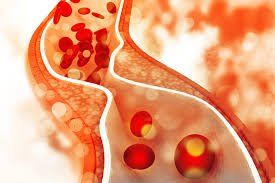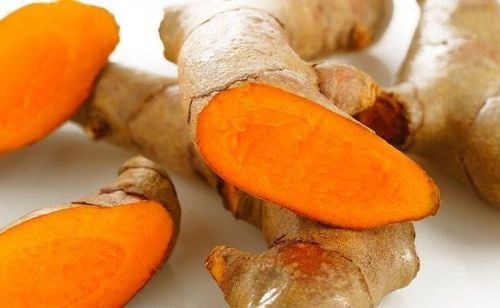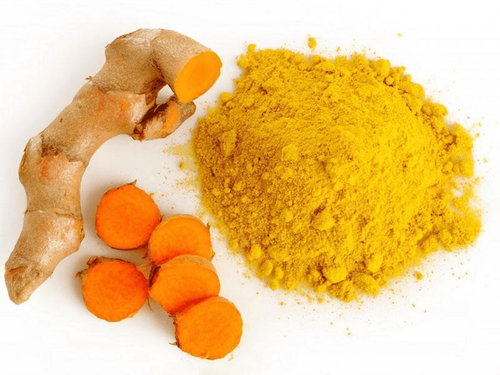This is an automatically translated article.
Turmeric is a spice and herb native to Southeast Asia. They contain many powerful anti-inflammatory and antioxidant substances, which help prevent many diseases such as diabetes, heart disease, obesity or inflammation.
1. Why should people take turmeric?
Curcumin is a substance found in turmeric, which helps to reduce inflammation in the body. Several studies have shown that curcumin reduces symptoms of osteoarthritis and rheumatoid arthritis, such as inflammation and pain. In addition, other compounds in turmeric are also used medicinally to treat a number of health problems.In recent trials, the curcumin in turmeric seems to prevent the growth of certain types of tumors. There is also research finding that curcumin-containing turmeric extract can control colorectal cancer that many other treatments cannot achieve. Besides, the consumption of turmeric or curcumin in turmeric can help you against various types of colitis, high cholesterol and stomach ulcers. Furthermore, many people have also used turmeric as a treatment for stomach upset, diabetes, HIV, depression, viral infections, and uveitis.
MORE: Is eating turmeric good for the liver?
Here are some other benefits of turmeric, including:
1.1. Enhance skin health
The skin is the perfect "cover" for our body from the invasion of harmful bacteria, and at the same time regulates the body's internal temperature. Many studies have shown that turmeric and curcumin in turmeric can improve skin problems, such as eczema, chronic acne, and psoriasis. The reason turmeric can do this is because the curcumin in them has the ability to reduce oxidative stress, boost collagen and heal tissue damage.
Chất curcumin trong nghệ giúp cải thiện tình trạng bệnh chàm
1.2. Effective weight loss support
Overweight and obesity are major factors that lead to a number of serious health problems, including diabetes, high blood pressure, heart disease and stroke. People with metabolic disorders often have difficulty controlling or losing weight. Fortunately, the curcumin in turmeric is thought to be very beneficial for metabolic conditions because they can help improve the body's metabolism, thereby preventing uncontrolled weight gain. . In addition, turmeric also helps the body to regulate lipid metabolism and increase insulin sensitivity.
1.3. Reduce symptoms of allergies and asthma
When the immune system overreacts to a foreign substance that can be harmful to the body, it will lead to an allergic condition. This problem often has unpleasant symptoms such as coughing, itching, or sneezing. Experts recommend that you take turmeric because the anti-inflammatory in them will work strongly to fight the symptoms of allergies and reduce the risk of asthma attacks.
1.4. Helps regulate cholesterol levels
Many clinical studies have found that consuming turmeric can help lower cholesterol and triglyceride levels in the body. It is especially beneficial for people with diabetes, obesity, metabolic disorders or other chronic conditions.
MORE: Can eating turmeric fight cancer?

Bệnh nhân có cholesterol trong máu cao nên bổ sung nghệ
2. How much turmeric should you consume?
Turmeric is an unproven disease treatment, although it has been used for many years now. Currently, there are no standard recommended doses for turmeric use. However, if you are pregnant or taking certain medications, you should consult your healthcare professional before taking any turmeric supplements or products.
3. What risks can using turmeric bring?
Although there are certain health benefits, the use of turmeric can also leave certain risks, specifically as follows:
3.1. Side Effects
Turmeric is considered a safe food. However, it can cause nausea and diarrhea if used in high doses or for a long time. In some cases, turmeric consumption can also lead to the risk of ulcers.
Also, when using turmeric as a topical treatment, it can cause skin irritation. People with kidney stones should consult their doctor before consuming turmeric.
3.2. Some risks when using technology
Pregnant women should not use functional foods from turmeric. Accordingly, pregnant women should talk to their healthcare professional before taking turmeric supplements on a regular basis if you have any medical conditions, including kidney disease, gallbladder disease, diabetes, bleeding and immune problems.
Because turmeric can increase the risk of bleeding, you should stop using it at least 2 weeks before surgery.

Nữ giới trong quá trình mang thai không nên uống viên bổ sung nghệ để tránh rủi ro
3.3. Drug interactions
If you are taking certain medications on a regular basis, you should consult your doctor before starting to use turmeric supplements. They can interact with certain medications such as NSAID pain relievers, aspirin, statins, blood pressure medications, diabetes medications, and blood thinners. Additionally, turmeric may also interact with supplements that reduce blood clotting, such as ginseng, ginkgo, and garlic.
Turmeric is a spice, and also a medicine that is used to treat many diseases. However, using turmeric can also carry certain risks. Therefore, to ensure safety before using turmeric to treat diseases, you should seek advice from qualified doctors and pharmacists.
Please dial HOTLINE for more information or register for an appointment HERE. Download MyVinmec app to make appointments faster and to manage your bookings easily.
Reference source: webmd.com













